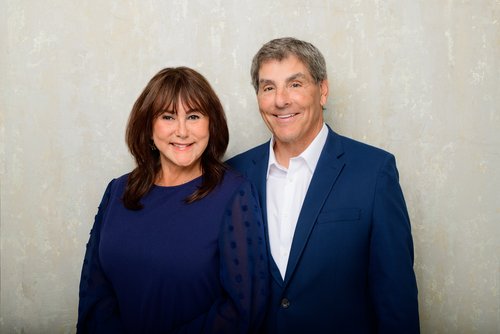Do Rising Interest Rates Impact Home Sales?
/I will begin this article by answering the title of this article…YES…MAYBE.
Many of us purchased our first home in the early 80’s. How can we forget the effect of rising interest rates as we secured our very first mortgage. Just to jog your memory of that very uncertain period, here is a rate sheet from the old First Wisconsin Bank:
Young people today find it hard to believe that interest rates reached a staggering number or almost 20% for a fixed rate 30-year mortgage. On top of that, the bank charged 3% of the mortgage amount upfront, just to have the privilege of securing that incredible debt. On a $350,000 mortgage, that would have been $10,500 in loan costs for that 20% 30-year fixed rate mortgage in 1981!
Think back to that period. You wanted a home to raise a family or avoid renting. The rate was incredibly high, but you went ahead and purchased that home because you had faith you could handle the payment as well as pride in owning your very first home. Your focus was on owning that home at all costs.
The past decade had many twists and turns, but one of the few positive aspects of the Great Recession and pandemic was falling interest rates. In January of this year, 2022, rates were about 2.8% for a 30-year fixed rate mortgage. I remember in 1982, lenders stated emphatically that rates would NEVER go below double digits. The lesson I learned over the years is that when you hear the word never, plan on the opposite. We can predict all we want, but human nature is an unpredictable factor which is almost impossible to predict. Remember the tragedy of 9/11 when it seemed like all business would come to an end. The opposite happened in real estate. The market boomed because folks were cancelling vacations and instead purchasing homes. The term was ‘cocooning’, meaning that we decided to stay at home as opposed to recreational spending. Prices at that time shot up rather than falling as one would expect with such a shocking event.
Back to the 1980’s, when interest rates skyrocketed to 20%. House prices fell almost 50% during that period due to deterioration of affordability. It is said that for every half-percent rise in interest rates, a homebuyer’s buying power drops by about 5%. If a buyer was approved for a $350,000 mortgage, and the interest rate went up by a ½ percent, a buyer could expect the purchasing power to drop by $17,500. In a typical real estate market, that would have cut prices by several thousand dollars from January of this year, when rates were 2.8% for a 30-year fixed rate mortgage, to the current 5.5% rate for that same mortgage. However, due to a shortage of inventory, and prolific number of would-be purchasers, prices have remained stable at all-time highs and in some cases a continuance of upward pricing.
At some point, what goes up will always come down. That is a fact. The question is when will a drop in prices begin. Listening to the pundits’ predictions, most agree that some type of recession is in the forecast. Buyers are beginning to back away and wait on the sidelines for this reduction to begin. At the same time, rents are also at all-time highs so would-be buyers are somewhat trapped. Do they want to pay higher rents, or higher mortgage payments. I believe if given that option, most qualified buyers would choose purchasing their first home. For that reason, I believe we are looking at a very gradual downturn in home prices over the coming year.
As we know, inventory, or the number of homes on the market, is at an all-time low. Due to the uncertain financial climate, would-be sellers are waiting on the sidelines to see if their home will continue to increase in value. Add to that, any homeowner thinking of selling and purchasing is stuck, not being able to find the next home due to the same low inventory.
We can’t predict the future when it comes to our health. I believe that many have been waiting too long, and health events will cause many homeowners to sell and move to a condo or senior community or apartment. Many will sell in the next year or so as the pandemic put a hold on many would-be sellers putting their home on the market. Therefore, my prediction is that we will see inventory rise in the coming year, causing prices to stabilize and begin the downward trajectory.
Bottom line, interest rates will reach a point, just as in the 80’s, where buyers will say enough. They will hold back purchasing or will make lower offers. This happens faster that we would predict, and once the media gets ahold of a new market, more will put their homes on the market causing a cascading effect.
Hopefully, rates will never reach 20% as in the early 80’s. But at what point the rising rates will affect home values will also depend on inventory and faith in the economy. The bottom line is that we purchased our homes in an extremely high interest rate environment and so will today’s millennial buyers. The only thing that constantly changes in real estate is price. Homes will always sell, but what buyers will offer to pay will always be an open question!















